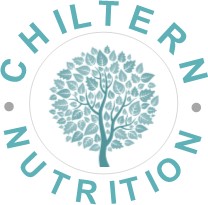Introduction to Gut Health
Introduction to Gut Health
Gut health is big news right now, with lots of terms being bandied around: microbiome, prebiotics, probiotics… It can all sound a bit confusing, so here’s a quick guide to gut health.
Why does it matter?
It’s still an emerging field of research, but we’re gradually understanding the extensive role that the gut plays in our overall health. Recent studies have uncovered links between gut health and immunity, mental health, autoimmune diseases and skin conditions to name but a few. It’s therefore important that we focus on gut health as a part of our overall wellbeing.
What is the microbiome?
Inside our gut we have a huge number of bacteria (about 2kg worth!), which are absolutely vital to our health and wellbeing. Collectively they are known as your microbiome. Our microbiome is as unique as our fingerprint, with most people having somewhere between 300-500 species of bacteria. These play numerous roles including helping us digest food, absorb nutrients and even making some vitamins, such as vitamin K. There are some bacteria which are less helpful to our health, so it’s important that we have the right balance of helpful vs harmful bacteria to ensure a health gut.
What are prebiotics?
Prebiotics are effectively the food for our gut bacteria, and it’s important that we get enough of them in our diets to ensure a healthy balance in our microbiome and to enable them to functionally optimally. Prebiotics are most commonly types of fibre, but not all fibre is prebiotic! There are many prebiotic foods, including bananas, sweet potatoes, leeks and porridge oats. There are no firm recommendations on the amount of prebiotics we should be consuming daily, but unless you’re one of the 4% of women (or 13% of men) who get the recommended 30g of fibre a day, you’re probably not getting enough! Try including more of these foods in your diet on a daily basis.
What are probiotics?
Probiotics are any food or supplement which contain live bacteria. This includes fermented foods such as live yogurt, sauerkraut or kefir, drinks like Actimel and supplements in tablet form. Interestingly, research suggests that most of the probiotics we ingest pass through the gut – it’s not that you take them and they set up shop in your small intestine. However, they appear to have a positive effect on gut health by reducing levels of inflammation and preventing the growth of “bad” bacteria.
There are many, many different strains of gut bacteria and there is evidence to suggest different strains have a different impact on various health issues, so there is no one size fits all when it comes to supplementing with probiotics. However, I recommend everyone includes probiotic foods regularly in their diet. Taking a probiotic supplement can be useful under certain circumstances, but it’s not necessary for everyone to take them all the time (seek advice from a registered nutrition professional if you want personalised advice).
Liz Driver, Chiltern Nutrition
Tel: 07853 664381
Our privacy policy
Copyright Chiltern Nutrition 2018. Designed by Cleverfrog Website Design


